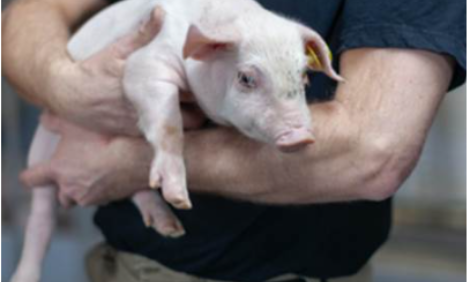



Brazil’s hog producers weather COVID-19 storm with strong exports
Despite early economic troubles, Brazil has been weathering the COVID-19 storm and is now continuing its upward growth trend.The impacts of the current COVID-19 outbreak have been less problematic in South America, with the human death toll remaining significantly lower than other regions. If all human deaths due to COVID-19 are accounted for in Latin America to date (Friday 8 May 2020), the number of deceased people in all countries combined are less than those registered in the United Kingdom, according to the numbers of John Hopkins University.
The same outlook can be applied to animal production, which has been hit hard in Europe and the US, but less so in the South.
If we look specifically at Brazil as an example, we observe that it is South America’s largest pork producer and exporter yet it has not experienced the economic downtrends that some US states and European countries have faced as a result of COVID-19. All voices in the Brazilian supply chain concur that 2020 began positively with good employment and consumption growth and, despite early difficulties, the country has recovered well. Some banks and consultancies estimated a GDP growth close to 3 percent until the coronavirus arrived in the end of February and state government sanitary measures crushed economic activities in the middle of March. All this considered, exports have grown by 130,000 metric tonnes and output has reached 3.7 million metric tonnes, numbers of the Brazilian Association of Animal Protein reveal.
Just one packing facility owned by JBS, in Passo Fundo, Rio Grande do Sul, was reportedly closed for some days due to a positive case of the coronavirus. There were no significant cases of euthanised animals registered in the country.
Francisco Turra, former minister of Agriculture and current president of the Brazilian Association of Animal Protein, revealed that two other packing facilities, also located in Rio Grande do Sul, had to close their doors, but just as a precautionary measure.
“Companies Agrodanieli and Minuano closed their facilities in the city of Lajeado to adapt to new precautionary measures for just two days, they were not forced by the government,” tells Turra.
The former minister believes that the higher unemployment in the country will not be enough to disrupt the hog supply chain because of bigger demand from other countries due to ongoing disease outbreaks, such as African swine fever.
“Brazilian hog producers will get out of the pandemic without being beaten. Because of the production problems all over the world, the only large provider will be Brazil,” Turra says.
Carlos Cogo, an experienced market analyst specialising in the agricultural business and based in Porto Alegre, Rio Grande, agrees that exports would help hog producers significantly in 2020. “In China [the current epicentre of the ongoing African swine fever outbreaks in Asia], there are indications that the herd started to recover, the prices are 145 percent higher than the same period of last year,” explains Cogo.
The heart of Brazilian hog production is the state of Santa Catarina, where 60 percent of Brazilian exports originate. Losivanio de Lorenzi, president of the Association of Swine Producers of Santa Catarina, expresses his worries about the current financial situation for producers. According to his numbers, the production cost in the state is at R$ 4.45 per kilogram, while the price paid to producers during quarantine was at R$ 3.30 (roughly $ 0.57). The prices before restrictive measures were at R$ 5.60 (roughly $ 1).
“Before the [coronavirus lockdown] measures, we were having parties and football games and then everything stopped with people staying home in urban centers. Luckily, now we’re seeing a small improvement of demand with some places lifting restrictions,” tells de Lorenzi.
“The export market is something that will save us in the rest of the year. Santa Catarina is the only state free of mad cow disease without vaccination and that counts [when looking to export]. New facilities are being granted authorisation to export to China and to new countries like Mexico,” he adds.
Valdecir Folador is the president of the Swine Producers Association in the neighbouring state of Rio Grande do Sul, the third largest hog producer in Brazil. He blames the high prices of soybean meal and maize for the current financial situation. The price of maize is over R$ 40 ($ 6.84 approximately) per bag of 60 kilograms and the meal at R$ 1700 ($ 290 approximately).
“We are seeing an improvement now because of lifted restrictions and I think that is because the government is paying the financial support programmes,” states Folador.
Asked if some producers would leave farming if they don’t have a contract with a company or cooperative, Folador thinks that if that happens, it would not be in big numbers.
“A lot of producers survived the recessions of 2015 and the crisis of 2016. Most of those that survived did so because they have the quality to survive under spot contracts. The solution is once the prices improves, invest in better equipment,” suggests Folador.
The second largest producing country in South America, Argentina, is not experiencing the positive situation that Brazil is facing. Last year, Argentina produced nearly 629,000 tonnes of hogs, but there is a leftover of 125,000 animals from 2019. Experts say that Argentina does not have the same proportion of export to China and relies more on domestic and Brazilian demand.
“In April and May we had a consumption drop of 3.6 percent, but the situation is a lot more dire than this number,” says Juan Manuel Bautista, Porcine Commission Coordinator at Argentina’s Rural Society.








